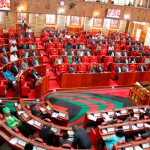Chairpersons and members of five constitutional bodies who have recently exited or are set to exit will collectively receive Sh232 million in gratuity for their service. The tenures of several members from the Public Service Commission (PSC), Salaries and Remuneration Commission (SRC), National Police Service Commission (NPSC), Ombudsman, and National Gender Commission have come to an end.
According to the terms of service, these officers are entitled to gratuity, calculated at 31% of their annual pay for the period served. Gratuity is compensation provided to public servants at the conclusion of their contract or upon retirement as a recognition of their services. This benefit is available to civil servants, Members of Parliament, state officers in the executive branch, and military personnel.
Treasury data indicates that PSC commissioners will receive Sh72 million, followed by SRC members, who are set to receive Sh64.8 million. NPSC commissioners are entitled to Sh46 million, while the Ombudsman commissioners will share Sh28 million, and officials from the National Gender Commission will receive Sh19.6 million.
Lyn Mengich’s tenure as chairperson of the SRC ended on September 13, after completing her full six-year term. She resigned alongside commissioners Amani Yuda, John Monyoncho, Leah Mumbua, Margret Sawe, Elizabeth Muchiri, and Peris Ashubwe, who will share the Sh64 million based on their basic salaries. The commission currently has two members: Abdullahi Abdi, who joined in November 2021, and Phyllis Wagacha, who was appointed in 2023.
Florence Kajuju also concluded her term as chairperson of the Commission on Administrative Justice (Ombudsman) in August. Two other commission members, Washington Sati and Lucy Ndungu, also finished their service after taking office on August 2, 2018. The three will share the Sh28 million allocated to the Ombudsman. Joyce Mutinda’s term as chairperson of the National Gender and Equality Commission also came to an end on September 3. She joined the commission in 2018, alongside Muriithi Chomba and Priscilla Nyokabi.
According to the constitution, holders of constitutional commissions and independent offices serve a non-renewable term of six years. Currently, there are vacancies at the Independent Policing Oversight Authority, as chairperson Anne Makori and seven members are set to exit. In response, President William Ruto has appointed three hiring panels to fill these vacancies.
These payouts highlight the burden on taxpayers to cover pension budgets for state officers. In the current financial year, the Treasury needs to raise Sh223 billion, which includes Sh93 billion for ordinary pensions, Sh85 billion for gratuity, Sh36 billion for the government’s contribution to the public service superannuation scheme, and Sh6 billion for other pension schemes.
Ordinary pensions are monthly payments provided to support public servants upon retirement for the rest of their lives. The total monthly pensions for retired civil servants, former MPs, military officers, and state officers amount to Sh82.12 billion. Additionally, the government extends ordinary pension payments to the dependents, widows, and children of public servants for a specified period after the primary beneficiary’s death.
An analysis by the Parliamentary Budget Office indicates that pensions for dependents amount to Sh4.91 billion, while pensions for widows and children total Sh7.44 billion. Over the next three years, more than 8,600 officers are expected to retire, creating a potential crisis within the Public Service Commission due to an aging civil service workforce.
Currently, over a quarter of the civil service workforce is comprised of individuals aged over 50 years. The PSC reports that 426 civil servants have already reached the age of 60, while at least 10,563 are in the 51 to 55 age bracket, and another 10,837 are aged between 46 and 50 years. As of June 30 last year, the government wage bill exceeded Sh1.1 trillion and is projected to increase further.



